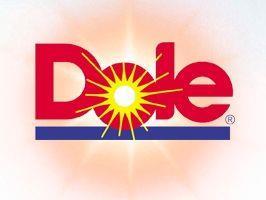
Dole South Africa says it now has 900 potential new grape varieties in its breeding programme in South Africa, with an increasing volume of varieties which have been released are now being exported under the Mando brand.
Lincense agreements have also been concluded to grow some of these varieties at international level, with Egypt one of the countries concerned.
In a statement released in Paris, Jean-Christophe Juilliard, President of Dole Europe, said investing in new varieties to keep offering the best possible produce was a key strategic cornerstone that allows Dole to differentiate itself in an increasingly competitive market.
'The sales figures show the growing interest of the market in these varieties: volumes have more than doubled over the past three years,' he said.
Mr Juilliard noted that although the increased sales are mainly due to Asian and Middle Eastern markets, Europe has recently become an opportunity to expand. 'Dole South Africa has made the most of its know-how to develop grapes that are complying with European consumers’ newest preferences.'
The Mando brand has been developed from the words Manchester and Dole. 'Dole SA first acquired the exclusive marketing rights to the Manchester varieties in 2004 and three years later bought the full ownership rights for these varieties, along with the majority share in the remaining Manchester crossings.'
According to the statement there are now around 900 new potential varieties at the breeding facility in Worcester in the Western Cape region of South Africa. Amongst the varieties that are already being exported are a black seedless grape called Desert, a white seeded variety called Moonballs and a red seeded grape called Alpha Red.
'With Mando varieties, Dole aims to answer both producers’ high-quality plant expectations and consumer’s sweet tooth,' says the statement.
Dole South Africa said that it firmly believed that one of the benefits of the new varieties for producers would be to offer exclusive access to new plant material that will be more cost-effective to produce and which will deliver increased yields. The company claimed this was due to the fact that the varieties offer lower labour and pesticide costs, have greater rain resistance, deliver higher yields per vine and require less preparation costs.
'They also offer longer storage time and shelf-life which is a decisive competitive point of difference for customers,' said the statement.
Desert and Moonballs have so far been grown mainly in South Africa, but Dole South Africa said it had recently finalised master licenses in various countries, such as Egypt, for the growing of these varieties. 'More importantly, the development of these new varieties is now possible in South America,' the group said.
'Our development in grapes will keep going. For example, Dole South Africa also owns a table grape variety called Tropical Wild - a large red seed grape with a litchi flavour,' said Gerald Gant, General Manager of Dole South Africa.
'We are investigating new varieties according to our continuous will to develop innovative and eco-friendly agricultural practices', he added.






No comments yet